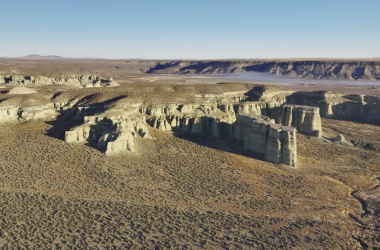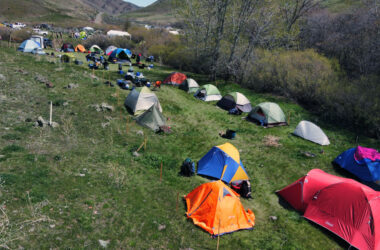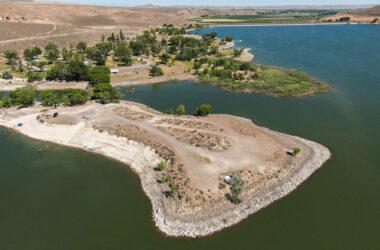The Idaho Department of Agriculture is asking the public to stay out of the water in the Centennial Waterfront Park area in Twin Falls as it has confirmed the presence of quagga mussel larvae in the Snake River.
In a press release last week, the department said multiple samples of quagga mussel at larval life stages were found in the area by the agriculture department’s early detection monitoring program.
“These invasive pests will clog pipes that deliver water for drinking, energy, agriculture and recreation,” Idaho Gov. Brad Little said at a press conference. “This is a very high priority for Idaho and for me, given the gravity of the risk. If we are not successful, an unchecked spread – which we are doing all we can to stop – has the potential to cost Idaho hundreds of millions of actual and indirect costs.”
Little said he is thankful the agriculture department caught the mussels early on and has already implemented a “robust response” to remove the invasive species.
According to the press release, this is the first time a rapid response plan has been put into action for quagga mussels in Idaho. The department is implementing a rapid response plan that includes notifying impacted entities, implementing containment measures, conducting delimiting surveys and evaluating for potential treatment options.
The department is asking for the public’s cooperation to stay out of the water at Centennial Waterfront Park as staff works to contain the mussel population. Boat ramps and public access to the water are closed temporarily.
“Our Invasive Species Program is prepared to respond to these findings quickly in an effort to contain mussel population growth in such a vulnerable area,” agriculture department director Chanel Tewalt said in the press release. “We greatly appreciate the public’s cooperation and plan on opening the area as soon as possible to minimize the impact to businesses that rely on the Snake River.”
All watercraft users are encouraged to follow the “Clean, Drain and Dry” actions for watercraft and equipment before entering and after leaving Idaho water bodies. The agriculture department watercraft inspection stations are also operating across the state and mandatory for watercraft users to stop at.
Idaho Lt. Gov. Scott Bedke said in a statement that the discovery of the invasive species is a major issue not just for Twin Falls, but for the entire state.
“If left unchecked, this can negatively affect our water quality, majorly impact the Snake River’s ecosystem, clog our irrigation pipes, and take over our ship and boat hulls,” he said. “I applaud the Department of Agriculture’s early detection and quick response to this issue and have faith in their action plan to contain – and potentially treat or remove – these mussels. I urge everyone to adhere to the Department of Agriculture’s rapid response plan so we can get this serious situation under control.”
For updates on the issue and to view a map of the impacted area, visit the action plan page on the agriculture department website.
Idaho Capital Sun is part of States Newsroom, a network of news bureaus supported by grants and a coalition of donors as a 501c(3) public charity. Idaho Capital Sun maintains editorial independence. Contact Editor Christina Lords for questions: [email protected]. Follow Idaho Capital Sun on Facebook and Twitter.




